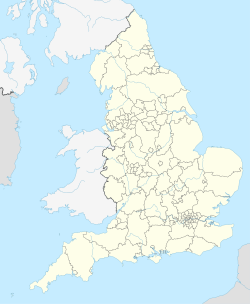 | |
 The Quadram Institute | |
| Abbreviation | QI |
|---|---|
| Predecessor | Low Temperature Research Station (LTRS) National Institute for Research in Dairying (NIRD) [1] |
| Formation | 2017 |
| Legal status | Non-profit research institute and charity |
| Location |
|
| Coordinates | 52°37′23″N1°13′07″E / 52.6230976°N 1.218573°E grid reference TG183077 |
| Services | Food science |
| Membership | 400 scientists and clinicians |
Director | Professor Daniel Figeys |
| Budget | £17,025,000 [2] |
| Website | quadram |
| Founded at | Norwich [1] |
|---|---|
| Registration no. | Companies House: 03009972 [4] Charity Commission: 1058499 [3] [2] |
| Location |
|
Region | United Kingdom |
| Methods | Research |
| Budget | (2016) |
| Revenue | £15,176,000 [2] (2016) |
| Staff | 164 [2] (2016) |
| Website | quadram |
The Quadram Institute is a centre for food and health research, combining Quadram Institute Bioscience (formerly the Institute of Food Research), the Norfolk and Norwich University Hospitals' endoscopy centre and aspects of the University of East Anglia's Norwich Medical School and the Faculty of Science. It is located on the outskirts of Norwich, England, and is a member of the Norwich Research Park.
Contents
The institute is housed in a purpose-built facility on the Norwich Research Park that opened in 2018. [5] Its founding partners are Quadram Institute Bioscience, University of East Anglia, Norfolk and Norwich University Hospital and the Biotechnology and Biological Sciences Research Council. [6] The institute combines research teams from the partners with a regional gastrointestinal endoscopy unit and a clinical trials facility. The first patients were treated in the endoscopy unit in December 2018. [7]

